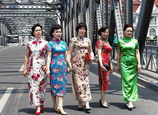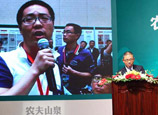
It is not always easy for governments to reach out to the citizenry in a meaningful way, especially in a huge and diverse county like China. China already has long-standing inbuilt systems to canvas the views of its citizens and, more recently, has experimented with a wide range of innovative approaches to citizens’ involvement in public decision making and problem solving. In some areas and some places, this experimentation is very impressive indeed:
? Through the Law on Legislation (2000) the government opened the legislative process for public comments through public hearings.
? Various levels of government in different regions have experimented with soliciting citizens’ views to inform public decision making.
? The use of social media to promote better governance has become a well-known phenomenon in China.
? Public opinion and satisfaction polls have been used in several places.
? Recently, the notion of social governance has been promoted, creating better articulation between government-provided services and services by the community and social organizations.
As China prepares to embrace its next round of reform and opening up under new leadership, it will be reflecting on how to build on this experience and take it to the next level. The next chapter of reform and opening up will not be as straightforward as previous chapters. The economic and social challenges today are more complex. Society itself is more complex. And China’s relations within the region and the world are more complex. Between economic growth and the natural environment or between development and social justice, new approaches and mechanisms will be required to strike the right balance for sustainable and equitable development.
Innovation from the top down will need to be complemented by social innovation at all levels, as well as through dynamic channels that irrigate the whole system with new and creative ideas. Not only will this keep the character of China’s development dynamic and forward looking, it will help expand China’s social capital and lay the ground for the next phase of China’s evolving social contract.
The author is Renata Dessallien, United Nations Resident Coordinator and UNDP Resident Representative in China.
Read the Chinese version: 激發(fā)創(chuàng)新活力

http://world.people.com.cn/n/2013/0321/c1002-20862289.html
















 Fishing fleet sets sail for Nansha Islands
Fishing fleet sets sail for Nansha Islands


![]()
